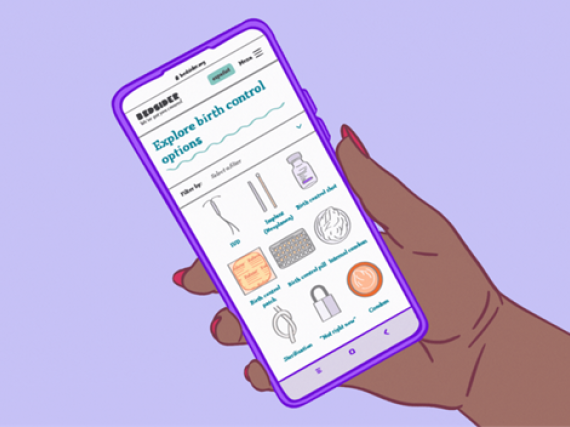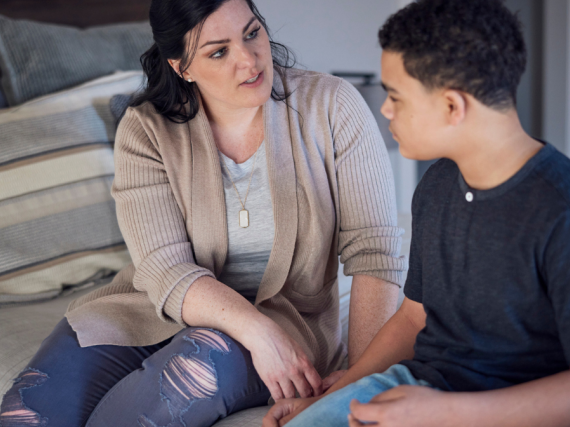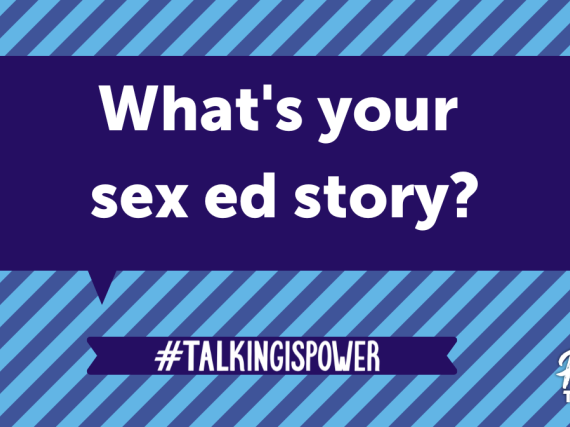3 Barriers to Communication: #TalkingIsPower 2019
Although we at Power to Decide all agree that #TalkingIsPower, we know that having an open and honest conversation about sex, love, and relationships isn’t always easy. It’s wonderful when champions (trusted adults) recognize the positive influence they can have on a young person’s life. However, it’s also a good idea to consider the barriers that may cause a young person to shut down communication with an adult, even one they once talked to openly. Here are three tips to help champions keep the lines of communication open with young people in discussions about sex.
- Be aware of socio-economic differences that may present a challenge to dialogue. You will want to meet them where they are to give them good advice. It’s important to consider your young person’s socio-economic background and personal experiences because they are part of the reality that young person faces. Class can affect anything from access to affordable birth control, the stereotypes they are labeled with, and their level of trust with adults who ignore these challenges. Try not to assume a young person’s socio-economic level implies they know more or less about sex, love, and relationships. If they are opening up to you, demonstrate a willingness to listen to them to learn their point-of-view.
- Be aware of the cultural differences that may be at the forefront of your young person’s mind. When we think about culture, we often focus on national, ethnic, or religious cultures in singular ways, rather than considering how they often combine to form complicated social customs. For example, cultural deference to adults or authority figures could mean a young person feels obligated to have a conversation with you that they’re not quite comfortable having. If the young person you care about comes from a family or culture that discourages open discussions about intimacy or sexual health, take your cue from them. Being too pushy might cause them to withdraw. On the other hand, their cultural norms could present a barrier to communication about sex, love, and relationships. You will want to know whether or not it is considered “taboo” in their culture to talk frankly about sex, to admit having it, or even admit thinking about having it. In either case, let them know you are there for them when they are ready to have that conversation, understanding they may have to work through their cultural barriers.
- Be aware of the ableism a young person may face when talking about their sexual health, whether their disability is visible or invisible. (Ableism is unconscious or deliberate social prejudice against people who have a disability.) Contrary to societal beliefs, young people with disabilities are sexual and want to make their own decisions about their bodies and their lives. As their champion, you can help connect them with the tools, information, and resources they need to feel empowered. But it’s important this is done with a sense of mutual respect. Essentially, learn as much as you can about your young person’s disability by both listening to them and researching on your own. This may help you to understand some of the challenges they could face in talking to you or other adults about sex. Consider them the expert on their lived experiences. Don’t try to “fix” them but do give your assistance when they express a need for it. And if you aren’t sure how to help, ask them directly how you can best support and advocate for them.
Above all, keep in mind that your young person is an individual with a unique background that you should take into consideration when you communicate with them. Doing so could be the difference between earning (and keeping) their trust or alienating them. As a champion, you have a key role in their life, and polling data shows that young people trust your information about sex, love, and relationships. No matter what the barriers to having “the talk” may be, remember that #TalkingIsPower and will help enable young people to decide if, when, and under what circumstances to get pregnant and have a child.



